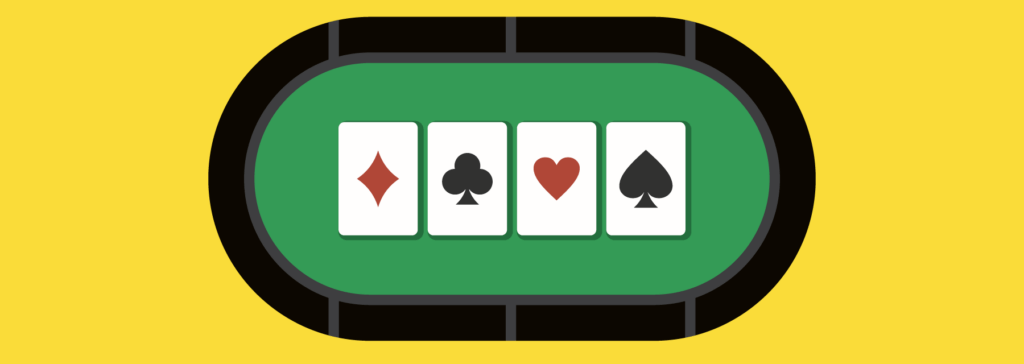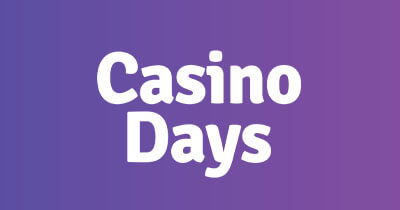Poker Strategy
Mastering the Art of PokerExplore the world of poker strategy and gain the upper hand at the tables! Discover the ways to turn every hand into a winning one. Whether you're a novice or a seasoned player, our guide will sharpen your poker skills and elevate your gameplay to new heights!
What Will You Learn From Our Poker Strategy Guide?
Poker is a popular card game that combines skill, strategy, and luck. The more you play, the more you’ll notice how the game variation, dynamics, and individual player styles affect your hands. To get you started, we’ve included tips, playing systems, and the best poker strategies in our Poker Strategy guide. Learn how to best adjust at the tables and raise your game experience!
6 important tips before you start
Poker can be overwhelming at first. But knowing a few things beforehand can help you set foot on the right track. Read the tips below to make the most of the game:
1. Get to know all the rules, odds, bets and payouts
Knowledge is power! Master the game’s rules first and develop the best poker strategy further on.
2. Choose a Poker variant smartly
Texas Hold’em is not the only poker variant there is. Learn about each one and pick the one that best suits you.
3. Plan your budget – how much are you prepared to win or lose
A rule of thumb for good playing habits is having good bankroll management. Stick to it, learn not to chase your losses, and play for entertainment and not as a way to make money.
4. Don’t forget about the time you’re willing to spend on a game
Determine how long you want to play with the responsible gaming tools available, and don’t jeopardize your daily activities.
5. Take your position into account
Your position at the table is key to your poker strategy. Learn to play your best hand in the early, middle, and late positions.
6. Learn the lingo!
Poker has its own set of words but isn’t complicated. Knowing them will make you look like a pro!
Basic Poker Strategy

A poker strategy is a systematic approach players use to maximize their chances of winning in a game of poker. It combines knowledge, skill, and adaptability, leading you to make better decisions. Before you know it, you’ll use the best poker strategy based on the strength of your hand, betting patterns, and your opponent’s actions.
4 Poker-playing styles
Most players fit into one of the four playing categories we discuss below. But more experienced players have several styles and switch from one to another to be less predictable. A poker strategy in itself!
Tight
Tight players are very selective with their hands. They tend to play only on those with big chances of winning and are very reserved about taking action in the pot.
Loose
On the other hand, a loose player will get involved most of the time, betting frequently with weak or strong hands.
Aggressive
An aggressive player won’t hold back from betting or raising. They have an extra way of winning a hand by making their opponents fold.
Passive
A passive player plays conservatively. They’ll most likely check, call, or fold but will rarely make a raise of their own.
When to raise
Raising a bet is a type of aggressive play. So, if your hand is strong, why not raise it and make the weaker fold? Also, if you’re sitting in the late position and the other players have either checked or folded, raise the bet to claim that pot!
When to call
By definition, calling a bet is as simple as matching the opponent’s bet. Knowing when to call is what’s challenging.
Calling too early might suggest you have a weak hand and that folding might’ve been better. But calling after the big blind is a good poker strategy. And if you’re sitting in the middle and late positions, you’ll see clearer opportunities to call based on the chip stack and your opponent’s actions.
Understanding the Pot Odds
Understanding pot odds is crucial to improving your game and is essential to online poker winning strategies. Knowing them allows you to calculate your probability of winning or losing. For that, you must compare the current pot size to the size of the bets.
For example, assume the pot is $100, and your opponent bets $50, making the pot $150. Divide the pot by the bet amount (150:50) and simplify to the smallest common denominator, 3:1.
It’s your turn to bet, and calling is $50. The final pot is now $200. Now, convert this ratio into a percentage to know exactly how much equity your hand needs to call the bet profitably. In this case, ($50 call / $200 final pot size) = 0.25 x 100 = 25%. You must win more than 25% of the time to profit if you call.
The Psychological Aspect – Playing the Player
Reading your opponent’s mind is an important part of poker. Recognizing their playing style and habits can create winning strategies against them. But take heed: experienced players know how to show what they want to be seen.
Advanced Poker Strategy

If you’ve mastered the basic poker strategies, take your game to new heights with advanced poker strategies! Know when a player is pot-committed, how to respond to a raise, and what to make up if a player shows his hands.
What is bluffing?
Bluffing is convincing your opponent you have a good hand and induce them to fold. It’s an art form and not as easy as it sounds. It won’t always work, but knowing when to bluff increases your odds of winning a hand.
How to become good at deception
- Start bluffing when the stakes are low to practice your persuasive skills.
- Choose your timing carefully – Raise the bet throughout the hand to pressure others to fold.
- Use your table image to your advantage – Bluffs are taken more seriously if you’re considered a tight player.
- Know when to strike – Early bluffs show card confidence. Late bluffs come as desperate.
What is GTO (Game Theory Optimal)
GTO is an advanced poker strategy that professional players use to exploit the opponent’s weak points to obtain a maximum. It seeks complete balance in the game, making your plays 100% unexploitable by your rivals.
How to master GTO
GTO can seem complicated for beginners. But following some useful tips will help you to master this pro strategy. There’s also downloadable software that’ll guide you when to call or raise.
- Balancing Your Bet Sizes – To remain unpredictable and unexploitable, ensure that every bet sizing you use is sometimes a bluff and a value bet.
- Use 3-bets – 3 bets refers to the first re-raise before the flop and also to the first re-raise after the flop. In any case, they lead opponents with weak hands folding, which narrows the field.
- Know your Odds – As explained earlier, understanding how odds work allows you to calculate your probability of winning or losing.
Hand Reading
Hand reading is a strategy used in other card games besides poker, such as baccarat and blackjack. The aim is to predict the most likely hands the opponent is holding by following a series of observations.
Tells
Our body language speaks. Pay attention to other players’ behaviors, like involuntary or repetitive gestures. They can hint at valuable information, like their hand strength or strategy. Tells can partially reveal your opponent’s decision-making process.
Leveling
Leveling is a strategy that requires a player to analyze the game beyond the cards he holds. He must try to think what the opponent thinks to determine what impression the action will give him. The player acts based on an educated prediction after considering the cards, table positions, pots, and betting decisions.
Which Poker Strategy Should You Choose?

The poker strategy of your choice will depend on several factors, such as your playing style, skill level, and poker variant. Once you define it, practice it until it comes naturally, and you can call it your own.
Poker Strategies for Beginners
Are you new to poker? We’ve all been there. Start with a basic and conservative approach to master the basics.
- Use an aggressive playing style – Most beginners don’t know how to respond to bold actions. Use it to steal blinds or force other players to fold.
- Observe the other players – An ideal time to do this is after folding a hand when the pressure of the game is over. Look for tells and use this information to your advantage.
- Know the rules to develop your skills – Excelling at poker takes time, but it starts with knowing the rules, the different bet types, and the odds.
Poker Strategies to Play if You’re a Pro
Professional players are not shy and will tend to play more aggressively. Use these tips to level up!
- Adopt the GTO strategy – This advanced poker strategy helps to make perfect calls and increase the chances of winning.
- Develop an aggressive playing style – Take advantage of your opponent’s inexperience. Make them fold and steal their blinds.
- Leveling – Use game prediction as a go-to strategy. It will become second nature and put your players in check.
Video Poker Strategy
Video poker is a fun version of the classic card game played either online or at land-based casinos. Here’s how to get the best out of this game.
- Choose games with high RTP to reduce the house edge and boost profitability.
- Look out for bonuses to extend your playing time and chances of winning.
- Know the rules – Video poker is based on a five-card draw. Learn its mechanics to increase your winning potential.
Poker Tournaments Strategy
Poker tournaments bring the best out of players. It pays to be prepared, plan, and determine the best online poker tournament strategy.
- Be patient – Poker tournaments are long and exhausting. Hold on to your mental strength for as long as possible.
- Change and adapt your playing style throughout the different stages of the tournament.
- Play it like you own it – Bet selectively and aggressively.
- Identify the best opportunities – Don’t get too excited in the game’s first stages, and don’t take more risks than you have to.
Poker Strategies That Got the Most Wins
Poker’s popularity doesn’t stop growing and attracting players from all corners of the world. People play it for fun or to grab some cash, like these big winners:
- Brynn Kenney – The American poker player is the highest-earning tournament player in history (over $56 million). He scooped $20.5 million on the Triton Million for Charity Event in 2019.
- Justin Bonomo – Bonomo has accumulated over $50 million in tournament winnings, including $10 million in the 2018 WSOP.
- Daniel Negreanu – Negreanu, a well-known figure in the poker world, has amassed over $42 million in tournament earnings. His most significant was in 2014, when he won $8.28 million.
General Beginner Mistakes Easy to Avoid
Beginner poker players can improve their game by fixing common mistakes, such as playing too many hands, failing to consider the position, and lacking emotional control. To ace the game, be selective with your hands, manage the bankroll effectively, and keep your emotional composure.





